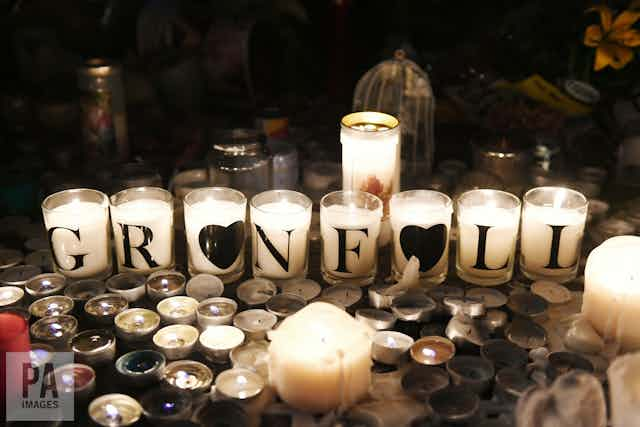First there were the terrorist attacks at the Manchester Arena and at London Bridge, in which 30 people were killed and hundreds injured. And then, most recently, scores died in the Grenfell Tower disaster after a blaze ripped through the building they called home.
The UK seems to have been hit with a series of horrific events in recent months. And yet despite the palpable sense of shock at these tragedies, the country has stood together with the victims and the families involved.
Local volunteers and organisations have played a leading role in recovery efforts and displayed remarkable skills of self-organisation. There have been people offering food, beds and accommodation, with volunteers and donations arriving not only from local areas but far beyond the boundaries of neighbourhoods or cities. And in all cases, help has also been provided by local businesses who have freely donated goods and services in the wake of disasters to support relief efforts.
But despite this surge of community spirit, in the case of Grenfell Tower, the failure of the local council and the UK government to respond appropriately or in a timely fashion has caused anger, offence and further suffering.
More than two weeks after the fire, people there are still waiting for information, to be rehoused, or to access emergency funds. Many of those made homeless by the blaze are moving between hotels or friends’ sofas every couple of days, with others left sleeping in their cars or even in local parks.
Community resilience
Questions have of course been raised about why in this case there has been such a lack of leadership and a failure to ensure the flow of vital information to survivors and the friends and families of the victims. But the answers are not yet clear.
Since the introduction of the Civil Contingencies Act (2004), much of the responsibility for emergencies has been devolved to local authorities, NHS bodies and emergency services. All local councils have emergency plans for major incidents, though these tend to be focused more on short-term response than on the longer process of recovery.
But government has also increasingly focused on the role of citizens in emergencies. Recent policy has emphasised the need for the public to play a more active role in emergency situations and their aftermath. This has involved encouraging the development of “community resilience” – meaning the ability to “bounce back” and recover from adversity.
This has not involved giving any funding or support to local groups wanting to plan for potential hazards like flooding or major accidents, or to obtain useful equipment or train volunteers. Instead, the government’s role has been limited to sharing good practice and information.

But at the same time as communities are being urged to be more resilient, government spending cuts have meant that people are left more exposed to different hazards. They are also undermining emergency preparation and response.
For example, we have seen the postponement or abandonment of hundreds of flood defence projects, the closure of A&E departments and cuts to emergency services. As well as all this, there have been the kinds of compromises on safety that the Grenfell Tower tragedy has highlighted. It would seem that the government is “piling up problems for the future”.
No support
What’s more, the ongoing programme of austerity has pushed the everyday lives of many people into chronic crisis, making them routinely reliant on emergency measures like food banks and payday loans.
Cuts to welfare spending and public services are having devastating effects, falling particularly heavily on disabled people, ethnic minorities and women.
These kinds of struggles with day-to-day survival undermine people’s ability to cope with disaster. After all, many of the resources and sources of support which people require in times of emergency are much the same as those they require day-to-day. But even for those more affluent communities, there is a limit to what can be achieved without external help and without the resources they need.
These recent events have underlined the vital role that local and central government must play during emergencies. Not only with the aim of getting back to “business as usual” but also to provide practical and emotional support to victims and their families in the following days, months and years. Which, sadly, seems to be something which has been all too slow to come about in the wake of the Grenfell fire.

